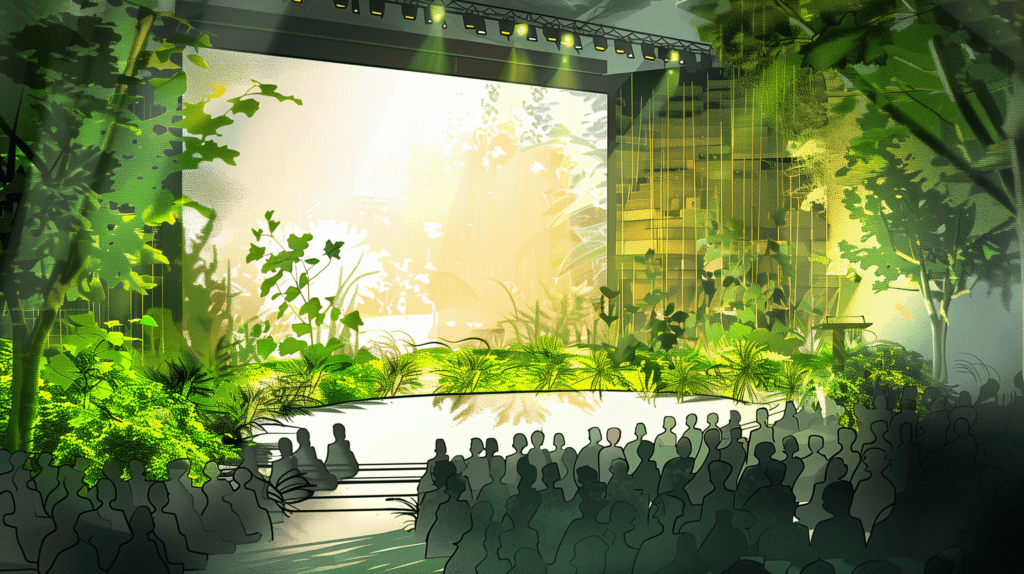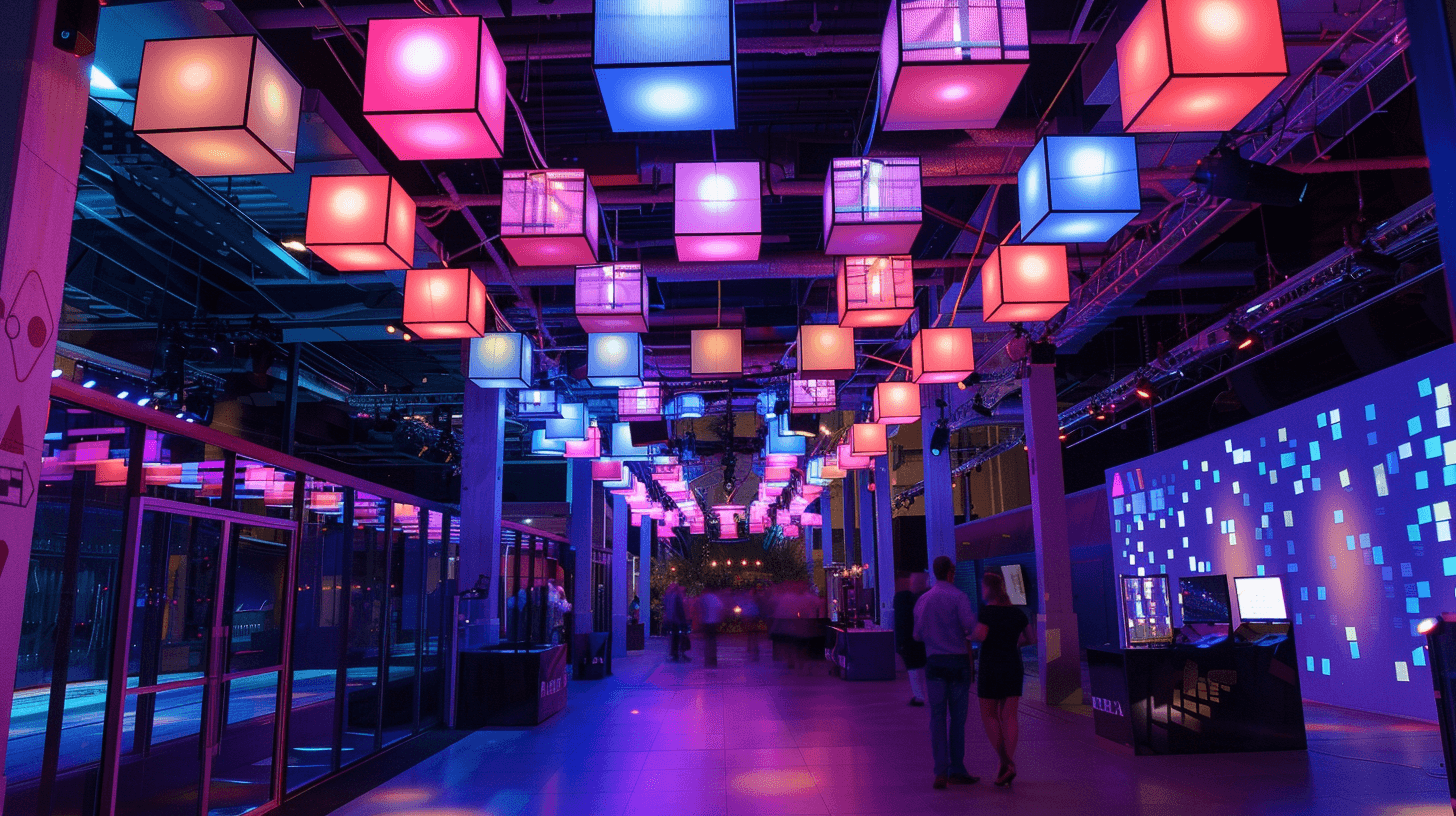Sustainable event planning is fast becoming a real action point and not just a buzz word. No longer does sustainability simply imply incorporating greenery or elements of nature into our designs. Instead, it embodies a holistic approach to resource management, energy reduction, and carbon footprint minimization. Not just at the event, but in every step of the pre & post event journey.

Redefining Sustainability in Events
Sustainability in event planning is more than just adding plants or nature-themed decor. Sure, greenery can make an event look amazing, but real sustainability is about how we use materials and reduce our environmental impact.
A big part of this is picking the right materials. Choosing things that can be recycled, are biodegradable, or reusable helps cut down on waste. For example, bamboo cutlery is a great alternative to single-use plastic because it’s strong and compostable. Likewise, using fabric for decorations or digital signage instead of throwaway items is not only stylish but also eco-friendly.
Energy Efficiency and Reducing Carbon Footprint
Another big area where event planners can make a difference is energy use. Choosing venues that run on renewable energy or have energy-efficient setups is a great start. You can also cut down on energy by using efficient lighting and sound systems.
Transportation is a huge part of an event’s carbon footprint too. To lower this, you could encourage guests to carpool, use public transportation, or even offer shuttle services. Virtual and hybrid events are also becoming more popular since they cut down on the emissions caused by travel.
Going Digital with Innovative Ideas
The digital world gives us tons of ways to make events more sustainable. Tech like virtual reality (VR) and augmented reality (AR) can create cool, immersive experiences without needing loads of physical materials. Not only do they get people engaged, but they also save on setup and logistics.
Digital ticketing and event apps also reduce the need for printing stuff, which means less waste. These apps can give real-time updates, interactive maps, and even help with networking—keeping things eco-friendly while making the event experience better for everyone.
Teamwork and Education
For a sustainable future in event planning, teamwork and education are key. By working with suppliers who care about sustainability, you can make sure your event is eco-friendly from start to finish. Plus, educating attendees about why sustainability matters helps create a culture of environmental responsibility.
Event planners can also use their platforms to spread the word about sustainable practices. Sharing success stories, offering tips, and even hosting workshops on eco-friendly event planning can inspire others in the industry to go green.
Why Sustainability Makes Business Sense
Going green isn’t just good for the planet—it’s good for business. People care more about the environment these days and are more likely to support brands that match their values. By focusing on sustainability, you can attract a wider, more conscious audience.
Plus, sustainable practices often save money in the long run. Cutting energy use, reducing waste, and reusing materials can help lower costs, giving you more financial reasons to embrace sustainability.
As we head into 2025, sustainability isn’t just a nice-to-have—it’s a must-have in event planning. By rethinking how we use materials, energy, and tech, we can create events that aren’t just unforgettable but also responsible. The future of event planning is all about innovation and sustainability, making sure every event leaves a positive impact on both people and the planet.
By embracing these ideas, we can lead the way into a new era of event planning, where sustainability takes the spotlight and our events leave a lasting legacy of environmental care and meaningful experiences.



